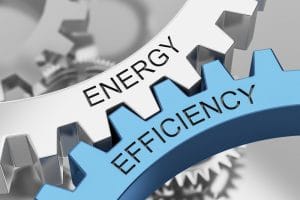Nowadays, concerns about energy efficiency and environmental impacts are increasing. In this context, heat exchangers used in many industrial processes and systems play an important role in saving energy and providing clean air.
What is a Heat Exchanger and How Does It Work?
Heat exchangers are devices that transfer the energy of one fluid (usually liquid or air) to another fluid. They provide heat, mass or energy transfer between two different fluids. Its main purpose is to save energy and increase operating efficiency. These devices are generally used for heat exchange but can be found in different types such as liquid liquid or air air exchangers.
Benefits and Energy Efficiency of Heat Exchangers
-
 Energy Saving: Exchangers help businesses reduce energy costs. Heat can be recovered through exchangers, increasing energy efficiency throughout the system.
Energy Saving: Exchangers help businesses reduce energy costs. Heat can be recovered through exchangers, increasing energy efficiency throughout the system. - Clean Air: Air quality is an important factor that affects our health. Air exchangers used to improve air quality reduce indoor pollutants and provide clean air.
- Use in Heating, Cooling, and Ventilation (HVAC) Systems: Exchangers are commonly used in HVAC systems. These systems are used to heat, cool and ventilate buildings, and exchangers save energy in these processes.
Why Use Heat Exchanger?
- Energy Efficiency: Heat exchangers reduce operating costs by increasing energy efficiency. Heat recovery optimizes energy transfer between processes.
- Environmental Benefits: Exchangers help reduce environmental impacts. Saving energy can reduce greenhouse gas emissions and contribute to a sustainable business model.
- Process Control: Heat exchangers provide temperature control between process fluids. This allows industrial processes to be managed more safely and effectively.
Affordability and Return on Investment
The affordability of heat exchangers is often measured by long-term return on investment. Considering the initial investment cost, the benefits provided by energy savings and operating efficiency often quickly offset the cost. In a long-term perspective, exchangers can provide significant savings for businesses.
In Which Sectors Are Heat Exchangers Used?
- Energy production
- Oil and Gas Industry
- Chemical Industry
- Food and Beverage Industry
- Heating, Ventilation and Air Conditioning (HVAC)
- Maritime and Ships
- Automotive
- Equipment Cooling
- Fermentation and Biotechnology
Conclusion
Energy efficiency, clean air, heat exchanger technology; These concepts have become important for businesses today. Heat exchangers offer solutions in the field of energy management by offering sustainability and economic benefits. These technological devices are an important step towards a more sustainable future, both environmentally and economically.
 Stainless Steel Products
Stainless Steel Products Mixing
Mixing Pumps
Pumps Heat Exchangers
Heat Exchangers System Solutions
System Solutions